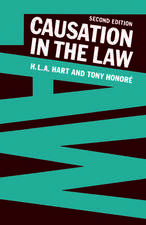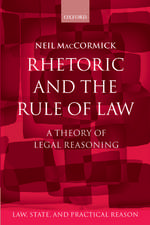Privacy, Due Process and the Computational Turn: The Philosophy of Law Meets the Philosophy of Technology
Editat de Mireille Hildebrandt, Katja de Vriesen Limba Engleză Hardback – 24 mai 2013
| Toate formatele și edițiile | Preț | Express |
|---|---|---|
| Paperback (1) | 416.60 lei 6-8 săpt. | |
| Taylor & Francis – 7 ian 2015 | 416.60 lei 6-8 săpt. | |
| Hardback (1) | 1052.80 lei 6-8 săpt. | |
| Taylor & Francis – 24 mai 2013 | 1052.80 lei 6-8 săpt. |
Preț: 1052.80 lei
Preț vechi: 1316.01 lei
-20% Nou
Puncte Express: 1579
Preț estimativ în valută:
201.48€ • 218.77$ • 169.24£
201.48€ • 218.77$ • 169.24£
Carte tipărită la comandă
Livrare economică 23 aprilie-07 mai
Preluare comenzi: 021 569.72.76
Specificații
ISBN-13: 9780415644815
ISBN-10: 041564481X
Pagini: 272
Ilustrații: 4 b/w images
Dimensiuni: 156 x 234 x 20 mm
Greutate: 0.66 kg
Ediția:New.
Editura: Taylor & Francis
Colecția Routledge
Locul publicării:Oxford, United Kingdom
ISBN-10: 041564481X
Pagini: 272
Ilustrații: 4 b/w images
Dimensiuni: 156 x 234 x 20 mm
Greutate: 0.66 kg
Ediția:New.
Editura: Taylor & Francis
Colecția Routledge
Locul publicării:Oxford, United Kingdom
Cuprins
Acknowledgments; On the contributors; Preface; 0. ‘Privacy, Due Process and the Computational Turn’ at a glance. Pointers for the hurried reader; Chapter 1: Privacy, Due Process and the Computational Turn A parable and a first analysis,; Part 1 Data Science; Chapter 2: A Machine Learning View on Profiling ; Part 2 Anticipating Machines; Chapter 3: Abducing Personal Data, Destroying Privacy. Diagnosing Profiles through Artifactual Mediators,; Chapter 4: Prediction, Preemption, Presumption: The Path of Law After the Computational Turn; Chapter 5: Digital prophecies and web intelligence,; Chapter 6: The end(s) of critique : data-behaviourism vs. due-process; Part 3 Resistance & Solutions; Chapter 7: Political and Ethical Perspectives on Data Obfuscation; Chapter 8: On decision transparency; Chapter 9: Profile transparency by design? Re-enabling double contingency; Index
Recenzii
While the purpose of this volume was to investigate the effects that these substantive topics are having on societal values such as privacy, autonomy and due process, the authors discussions on the means that allow for governments and corporations to utilise such tools—for example, data mining, machine learning and artificial intelligence; and, the moral and ethical implications of these technologies, were well articulated, thought-provoking and fascinating.
- Devin Frank for Birkbeck Law Review Volume 2 issue 1 April 2014
- Devin Frank for Birkbeck Law Review Volume 2 issue 1 April 2014
Descriere
Privacy, Due process and the Computational Turn: The Philosophy of Law Meets the Philosophy of Technology engages with the rapidly developing computational aspects of our world – including data mining, behavioural advertising, iGovernment, profiling for intelligence, customer relationship management, smart search engines, personalized news feeds, and so on – in order to consider their implications for the assumptions on which our legal framework has been built. The contributions to this volume focus on the issue of privacy, which is often equated with data privacy and data security, location privacy, anonymity, pseudonymity, unobservability, and unlinkability. Here, however, the extent to which predictive and other types of data analytics operate in ways that may – or may not – violate privacy is rigorously taken up, both technologically and legally, in order to open up new possibilities for considering, and contesting, how we are increasingly being correlated and categorized.





























